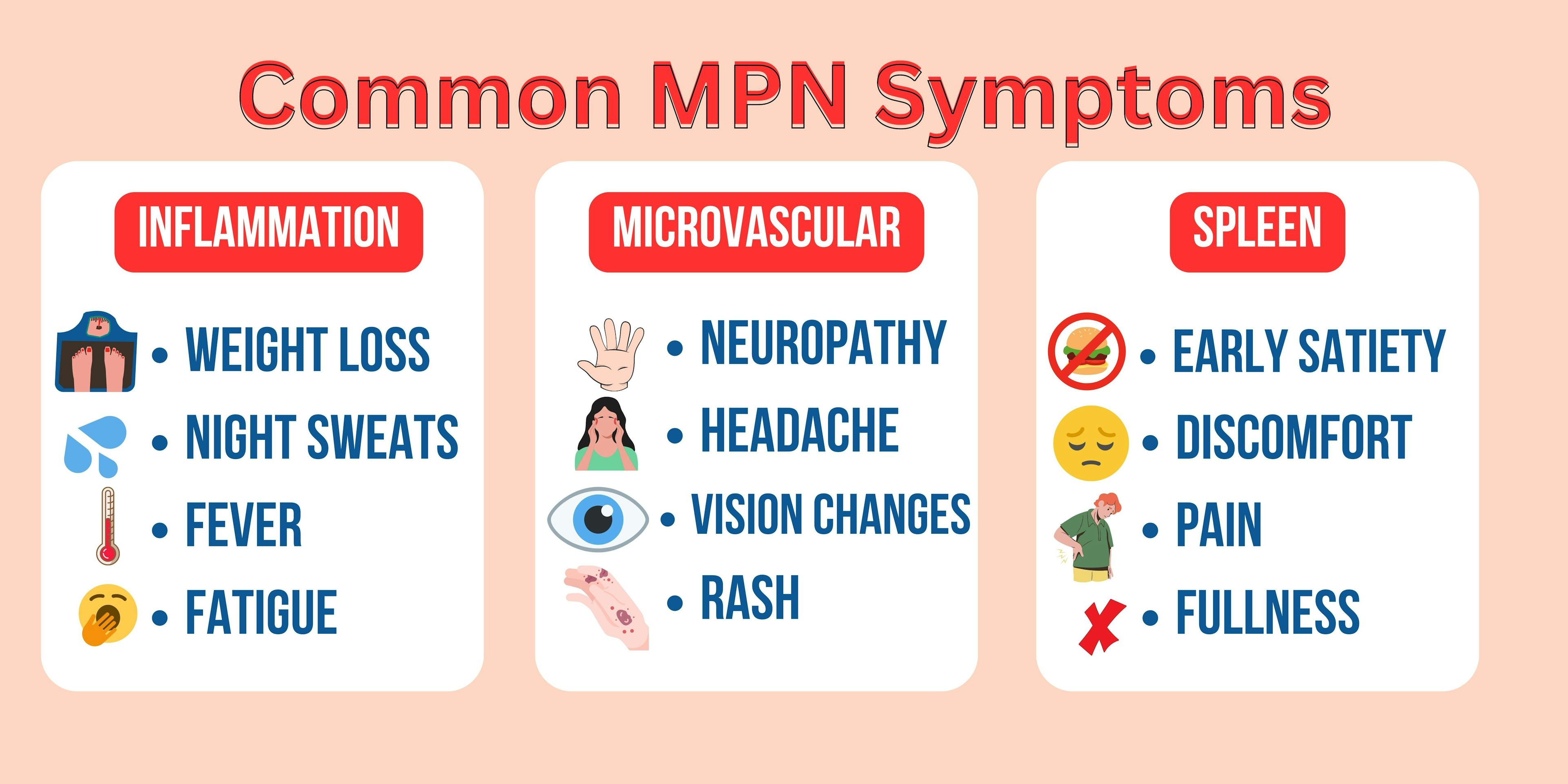July 25, 2023
Alex Biese
Nurses play a crucial role in managing symptoms experienced by patients with myeloproliferative neoplasms (MPNs) — a group of blood cancers that cause the bone marrow to overproduce red or white blood cells or platelets.
“MPNs are rare, and the nurse/nurse practitioner [must] take the time to listen to the patients and educate them about symptom management,” Alfa Lafleur, APRN, from Florida Cancer Specialists and Research Institute Trinity Cancer Center in Trinity, Florida, told Oncology Nursing News®.
Even though the MPN category includes a range of diseases such as myelofibrosis, essential thrombocythemia, and polycythemia vera, patients with MPNs experience several common symptoms. Lafleur said she likes to think of those symptoms in categories.
First, Lafleur explained, there are the inflammation-related symptoms including weight loss, night sweats, fever, fatigue and a general feeling of unwellness. Then, there are the microvascular-related symptoms related to dysregulation of the JAK2 pathway, which can cause numbness in the hands and feet as well as headaches, vision changes and a painful rash. There are also symptoms related to the enlargement of the patient’s spleen, including fullness, pain and discomfort in the upper left quadrant of the abdomen.
As MPN symptoms typically intensify over time, with patients potentially experiencing long asymptomatic periods, the symptom identification and management work of a nurse is of particular importance.
“The nurse remains vigilant in assessing for symptoms as early identification that the disease may be worsening or transforming (which) can result in improved patient outcomes,” Lafleur said.
It’s also important for patients to keep tabs on their symptoms, as the MPN Research Foundation explains on its website.
“Because symptoms can vary significantly among MPN patients, it is important to track changes in symptoms and their severity between doctor visits,” the foundation states. “Keep current on the latest MPN research updates and speak to your doctor about how changes in your symptoms may call for a change in treatment.”

Resources are available for both patients and providers. Lafleur cited the MPN Research Foundation’s education for providers and patient support hotlines staffed by counselors who can in turn provide emotional support and assistance in locating additional resources and support groups.
Additionally, Voices of MPN, she said, “has a phenomenal app that helps the patient to track their symptoms, educates on the disease process and offers other resources and support to the patient.”
Patients with MPNs, Lafleur noted, can live with their cancer for years as they undergo different treatments that are each associated with side effects and symptoms — an experience that, she said, “can be really frustrating and upsetting” — and can be accompanied by fear of MPNs’ potential transformation into more aggressive forms of cancer such as leukemia or the risk of experiencing amyocardial infarction or cerebral vascular accident, or CVA, also known as a stroke.
Lafleur has some straightforward guidance for patients: “My best advice to patients is to remind them that they are not alone in this disease,” she said. “No symptom is too small to bring to the attention of your nurse who is more than willing to assist with the physical and mental challenges that come.”
Reference
MPN Research Foundation. Accessed July 25, 2023. https://www.mpnresearchfoundation.org/
